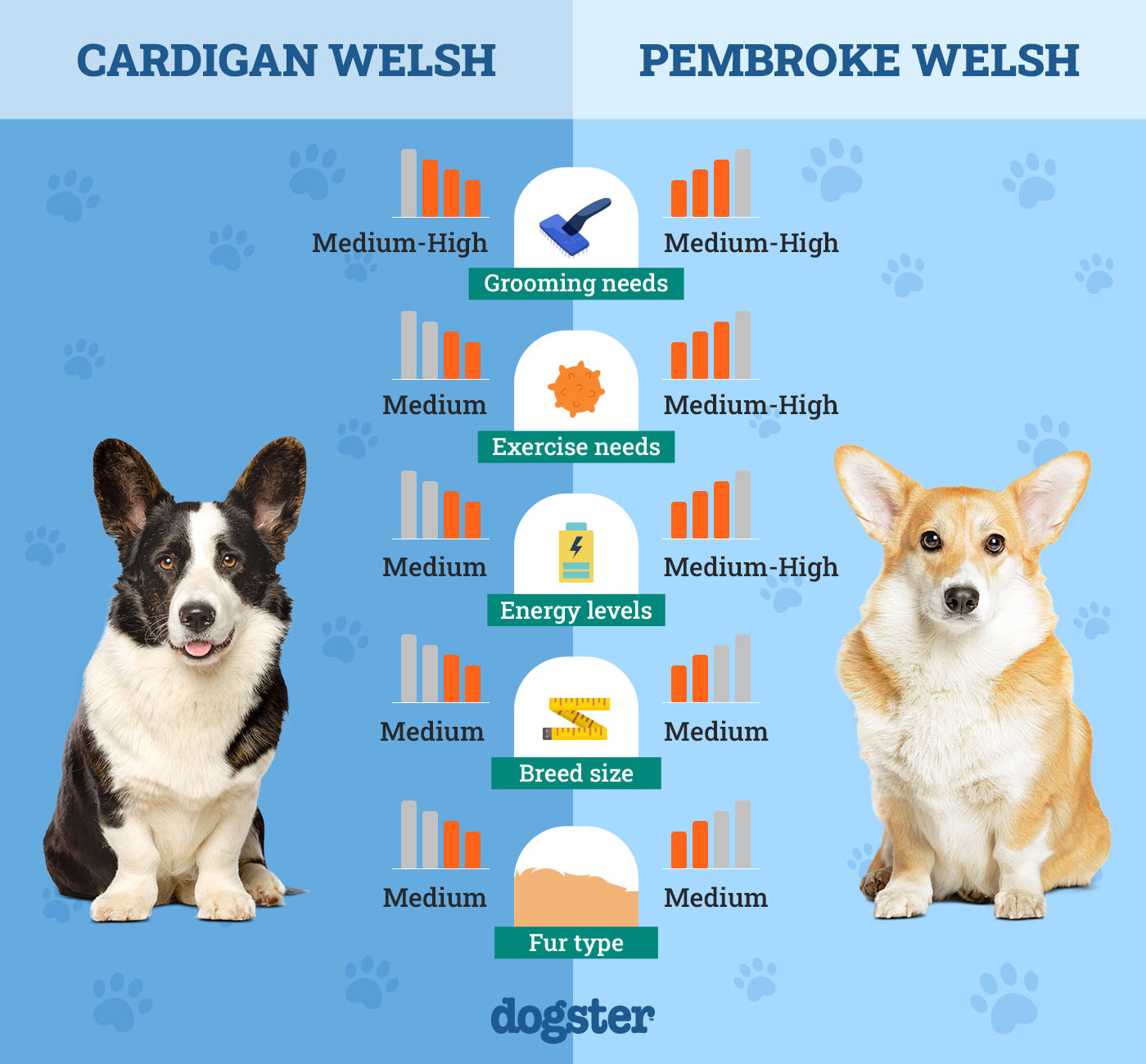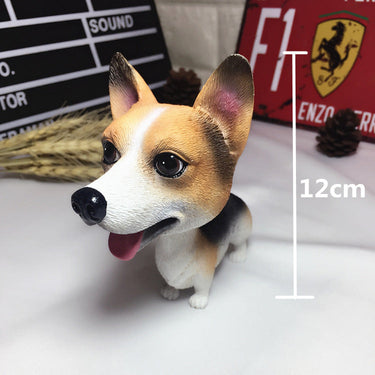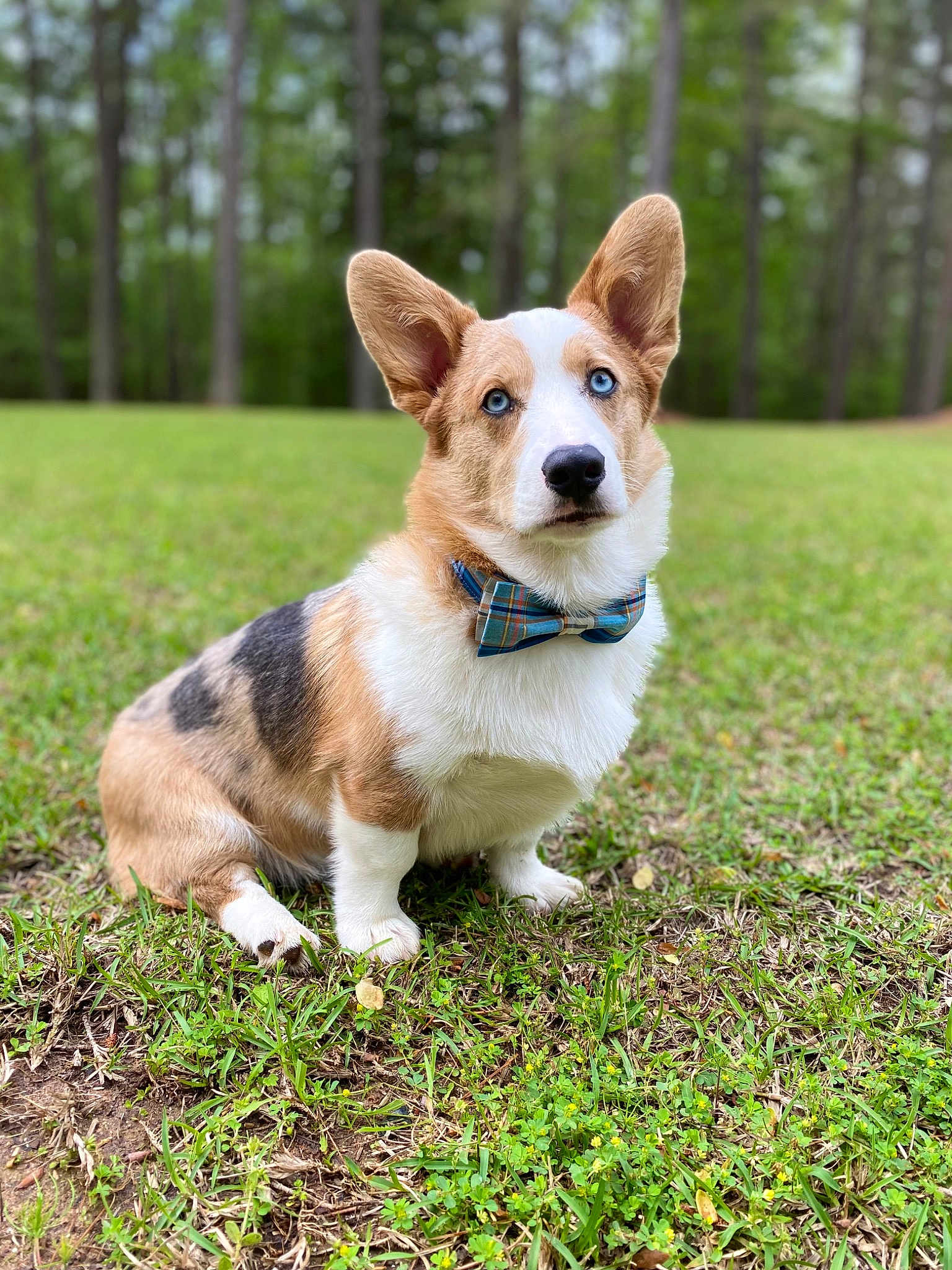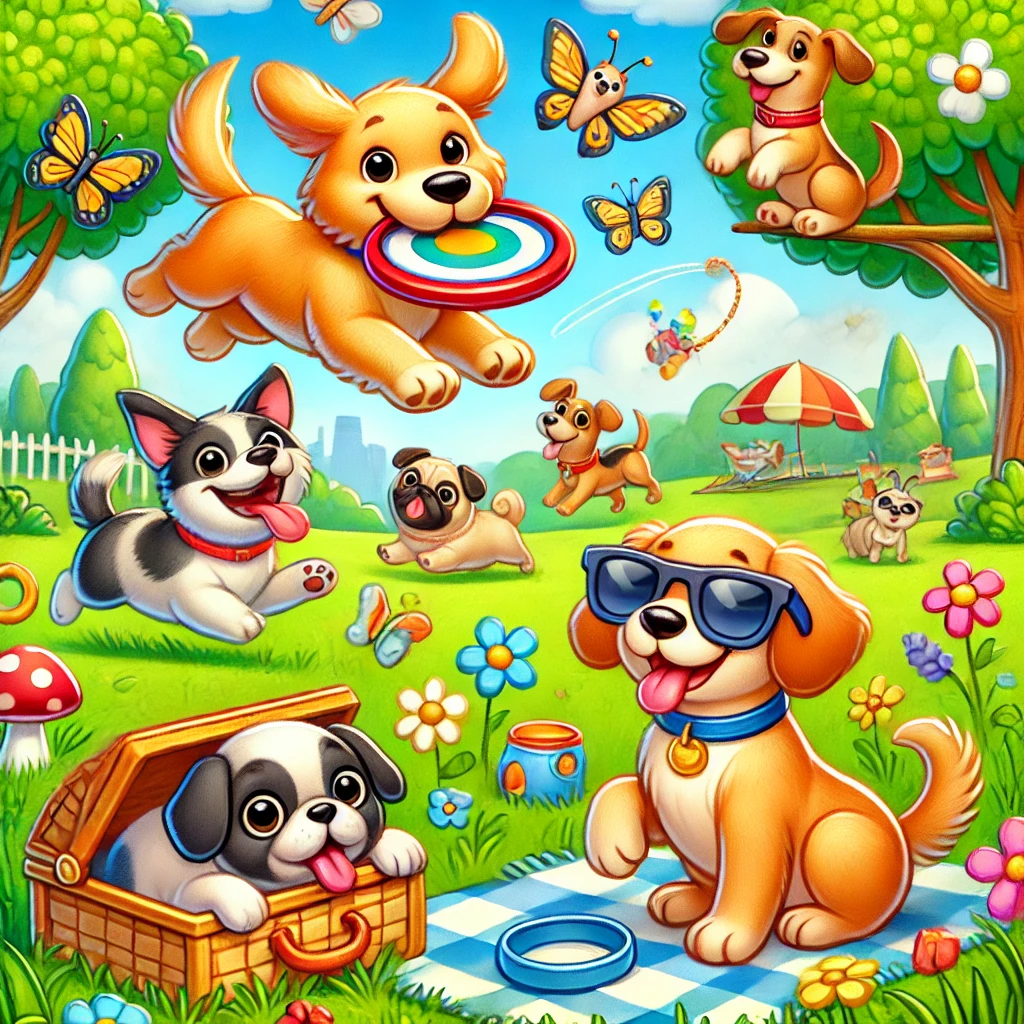
Overview of Cardigan Welsh Corgi Dogs
History and Origin of the Cardigan Welsh Corgi
The Cardigan Welsh Corgi, a breed steeped in rich history, has been around for over 3000 years. Originating from Wales, these delightful dogs were likely brought by Celtic tribes who migrated to the region. Their name, derived from “cor gi,” meaning “dwarf dog” in Welsh, hints at their unique stature and charm.
Believed to be a descendant of the same family that birthed the Dachshund and Basset Hound, the Cardigan has served various roles throughout history. They were prized for their herding abilities, helping farmers manage cattle and guard them against predators. The loyalty and dedication of these dogs earned them a significant place in farmers’ lives in Wales. They even inspired laws that protected them from harm due to their vital role in agriculture.
In modern times, they were showcased in English dog shows starting in 1919, leading to their distinct recognition as a separate breed from the Pembroke Welsh Corgi in 1934. Today, they flourish both as beloved family companions and affectionate show dogs.
Physical Characteristics and Temperament
It’s impossible to overlook the distinctive appearance of the Cardigan Welsh Corgi. With a sturdy build and unique long tail, they typically stand between 10.5 to 12.5 inches tall and weigh between 25 to 38 pounds. Their coat, which can come in a variety of colors such as red, brindle, and blue merle with white markings, gives them a striking look. Cardigans possess:
- Rounder ears that set them apart from the Pembrokes
- Dense double coats that shed heavily, especially during seasonal changes
- An alert and friendly expression that reflects their intelligent nature
Temperament-wise, Cardigans are known for their loyalty, affection, and intelligence. They form strong bonds with their families and are quick learners, which makes them excellent candidates for training and obedience. While they can be a bit reserved with strangers— true to their herding heritage—they are alert watchdogs and generally good with children and other pets when socialized properly.
In summary, the Cardigan Welsh Corgi is not just a breed with a fascinating history; they are also characterized by their lovable temperament and charming appearance, making them wonderful family members for any household.
Caring for Your Cardigan Welsh Corgi
Diet and Nutrition Guidelines
When it comes to keeping your Cardigan Welsh Corgi healthy and happy, a well-balanced diet is essential. These energetic dogs thrive on a high-quality diet that is appropriate for their age and activity level. Here are some important dietary considerations:
- Portion Control: Aim to feed your Corgi around 1 to 1.5 cups of high-quality dry food daily, divided into two meals. Cardigans can have hearty appetites, so be cautious with portion sizes to prevent obesity.
- Quality Ingredients: Choose dog food that lists real meat as the primary ingredient. Look for options free of fillers, artificial preservatives, and excessive grains.
- Stay Hydrated: Ensure your pup always has access to fresh, clean water. This is particularly important if your Corgi is active or during hot weather.
- Avoid Human Food: While it can be tempting to share your meals, avoid giving them people food, as it may lead to poor health or undesirable habits.
Daily brushing and regular vet visits will help monitor their dental health. As they can be prone to dental disease, regular dental check-ups and professional cleanings are recommended.
Exercise and Training Needs
Cardigan Welsh Corgis are spirited dogs, full of energy and intelligence. They require regular exercise and mental stimulation to keep them happy and avoid behavioral issues. Here are some tips for meeting your Corgi’s exercise needs:
- Daily Walks: Ensure your Corgi gets at least 30 to 60 minutes of exercise every day. A mix of brisk walks and playtime will help burn off their excess energy. Adapt the pace and duration based on your dog’s age and fitness.
- Interactive Play: Corgis enjoy interactive games like fetch and tug-of-war. These activities not only provide physical exercise but also strengthen your bond with your furry friend.
- Agility Training: Engaging your Cardigan in agility activities can be a fulfilling way to channel their herding instincts. Many Corgis excel in agility courses which offer both physical and mental challenges.
- Obedience Training: Early socialization and obedience training are crucial. Start with basic commands like “sit,” “stay,” and “come.” Keep training sessions short and enjoyable, using positive reinforcement techniques to motivate your pup.
With commitment to their diet and exercise needs, you’re setting the stage for a happy, healthy life with your Cardigan Welsh Corgi. Remember, these loyal companions thrive on interaction and meaningful experiences, enriching both their lives and yours!

Bonding and Interaction with Your Cardigan Welsh Corgi
Building a Strong Relationship
Developing a strong bond with your Cardigan Welsh Corgi is both rewarding and essential for a harmonious life together. These intelligent and spirited dogs thrive on companionship, so engaging with them meaningfully can strengthen your relationship. Here are some ways to nurture that bond:
- Quality Time: Spend dedicated time each day simply being together. Cardigans love to be at the center of attention, and just having you nearby means the world to them. For example, I often find myself having animated discussions with Pickles, my Corgi, as we share our daily routines.
- Communication: Just like Pickles has her own opinions on dinner time and the comings and goings of guests, make room for dialog. Use positive reinforcement to acknowledge their behaviors, making them feel understood and appreciated.
- Training Sessions: Begin obedience training early, using positive reinforcement techniques. Not only does training helps establish your role as a leader, but it also serves as a bonding experience. You’ll find that training sessions can be fun and rewarding for both of you.
- Socialization: Ensure your Corgi is exposed to various people, pets, and environments. This exposure allows them to build confidence while enhancing your bond. Pickles, for example, loves greeting neighbors and making new friends during our walks.
Playtime and Activities to Enjoy Together
Playtime is an essential component of your Corgi’s life, and it’s a fantastic way to strengthen your relationship while keeping them physically and mentally stimulated. Here are a few activities you can enjoy together:
- Fetch and Tug-of-War: Corgis are energetic dogs that love to play games that tap into their herding instincts. Fetch or a game of tug-of-war can help keep them active while forming that emotional connection.
- Agility Training: Because of their herding background, Cardigans excel in agility courses. Consider setting up a mini agility course in your backyard or taking a class together. This not only challenges them physically but also mentally.
- Interactive Toys: Incorporate puzzle toys that require problem-solving. Toys that dispense treats when solved can capture their attention and provide mental stimulation—perfect for those brainy Cardigans!
- Daily Walks: Never underestimate the power of a good walk. Not only does it provide exercise, but it also offers opportunities for exploration, meeting other pups, and socialization, keeping your Corgi happy and engaged.
Through regular interaction and playtime, you foster a loving environment where your Cardigan Welsh Corgi can thrive. Each moment spent together fortifies that bond, leading to a deeper and more fulfilling relationship. So, embrace your time together, as each wagging tail and eager bark from your Corgi reminds you of the joy they bring into your life!

Health and Wellness of Cardigan Welsh Corgis
Common Health Issues to Look Out For
While Cardigan Welsh Corgis are an affectionate and robust breed, they can be prone to certain health issues that every owner should be aware of. Regular veterinary check-ups can help catch these problems early. Here are some common health concerns specific to Cardigans:
- Intervertebral Disc Disease (IVDD): This condition affects dogs with long backs, like Corgis. The jelly-like cushions between vertebrae can slip or rupture, leading to pain, weakness, or even paralysis. If your Corgi shows reluctance to jump or move, consult your vet immediately.
- Hip and Elbow Dysplasia: Cardigans can be prone to dysplasia, which can lead to arthritis as they age. Watch out for signs like lameness or difficulty standing up, and consider routine X-rays to monitor joint health.
- Obesity: Due to their hearty appetites and social natures, Corgis can easily become overweight. This can exacerbate other health issues, including joint pain and heart disease. Stick to a consistent feeding routine without indulging in excessive treats.
- Eye Problems: Cardigans can develop progressive retinal atrophy (PRA) and other eye conditions that may lead to vision loss if not addressed. Regular eye check-ups with a vet can help manage these risks effectively.
By paying attention to these common health issues, you can position your Cardigan for a long and fulfilling life.
Regular Grooming and Veterinary Care
Keeping your Cardigan Welsh Corgi healthy extends beyond regular vet visits; it requires a commitment to grooming and at-home care. Here are some tips to keep your Corgi looking great and feeling even better:
- Dental Hygiene: Start brushing your dog’s teeth early; daily brushing is ideal to prevent dental disease, which many dogs face. By keeping their teeth clean, you help avoid serious health issues related to the heart and kidneys.
- Regular Grooming: Cardigans shed year-round, especially during seasonal changes. Brush your Corgi at least once a week, and during heavy shedding seasons, daily brushing can help manage the fur. This not only keeps your home cleaner but also allows you to bond through grooming.
- Ear Checks: Regularly check your Cardigan’s ears for dirt and wax buildup. Cleaning them gently once a week can prevent infections and discomfort.
- Routine Veterinary Visits: Schedule annual check-ups. Vaccinations and preventive care for parasites like fleas and ticks are essential for a happy, healthy dog.
Adopting a holistic approach to your Cardigan’s health is crucial. By staying vigilant about their wellbeing through regular veterinary care, grooming, and at-home practices, you not only protect their health but also enhance the quality of the bond built over the years. Remember, your Cardigan relies on you for their care, and the rewards—like cuddles and companionship—are endlessly fulfilling!

Cardigan Welsh Corgi in Different Lifestyles
Corgis in Families with Children
Cardigan Welsh Corgis make exceptional family pets, particularly for households with children. Their playful and affectionate nature turns them into ideal companions for kids of all ages. Here are some reasons why Cardigans thrive in family environments:
- Gentle Temperament: Despite their herding instincts, Cardigans are known for their gentle demeanor. They blend well in family settings, treating children with care and patience.
- Playful Energy: These dogs have boundless energy, and their enthusiasm can keep kids engaged in active play. Whether it’s a game of fetch or a run in the backyard, Cardigans often bring out the best in children, encouraging them to be more active, too.
- Social Interaction: Corgis love to be part of family activities. My friend has a Cardigan named Zippy who makes it a point to check on everyone during family gatherings, ensuring that each member, especially the kids, feels loved and included.
- Loyal Companions: Their unwavering loyalty means they will stand by their young human siblings, and this builds a special bond that many kids cherish as they grow up. Corgis can be protective without being aggressive, offering a sense of safety and companionship.
While Cardigans are generally great with children, they will still benefit from early socialization to ensure they are comfortable with bustling household activities.
Corgis in Apartment Living Situations
Contrary to what some might believe about larger dog breeds, Cardigans can adapt well to apartment living. Their compact size and moderate exercise needs make them suitable for smaller living spaces. Here are some insights on accommodating a Cardigan in an apartment:
- Manageable Size: Standing at just 10.5 to 12.5 inches tall, the Cardigan’s small stature means they won’t need as much space to roam as larger dogs.
- Daily Exercise: While they do need daily exercise, this can easily be fulfilled with walking or playtime at a nearby park. A couple of short walks daily often keeps them happy and healthy. Given that my neighbor owns a Cardigan, I’ve seen how they enjoy their walks, greeting other dog owners along the way with wagging tails.
- Active Indoor Play: Cardigans are intelligent and love to engage in activities that stimulate their minds. Using interactive toys, setting up mini agility courses, or teaching them tricks can keep them entertained indoors.
- Socialization Opportunities: Living in an apartment complex often means more opportunities for social interaction with neighbors, dogs, and children. Corgis thrive on socialization and appreciate these encounters, making it beneficial for both you and your Corgi.
In summary, whether in a bustling household with children or cozy apartment living, Cardigan Welsh Corgis can adapt remarkably well to different lifestyles, enriching the lives of their families with loyalty and joy. With the right care and attention, these charming pups will thrive anywhere!

Leave a Reply